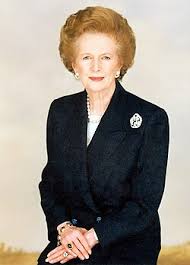The Enduring Legacy of Margaret Thatcher in Today’s Politics

Introduction
Margaret Thatcher, the first female Prime Minister of the United Kingdom, served from 1979 to 1990. Her leadership was marked by significant political and economic reforms that not only transformed Britain but also influenced conservative movements around the world. Thatcher’s policies regarding deregulation, privatization, and a reduction in the power of trade unions came at a time when the UK faced economic turmoil.
Thatcher’s Policies and Their Impact
Thatcher’s tenure is often characterized by her push for neoliberal policies, which focused on free-market principles that aimed to stimulate the economy. She famously declared, “There is no alternative” to her approach of reducing the state’s role in the economy. Her government implemented a series of unpopular measures, including the privatization of state-owned industries and reducing subsidies to public services. While these policies led to short-term social unrest, including the famous miner’s strike, they ultimately reshaped the British economy into one that prioritizes private enterprise.
Thatcher’s foreign policy also left an indelible mark, particularly her firm stance during the Cold War. Her relationship with US President Ronald Reagan galvanized the Western alliance against the Soviet Union, and she played a pivotal role in what would become the end of the Cold War. The Falklands War in 1982 also exemplifies her uncompromising leadership style and bolstered her popularity at home during a challenging time.
Relevance in Modern Politics
Today, Thatcher’s influence persists, as many contemporary politicians and political movements invoke her legacy. Right-wing and conservative parties across the globe have drawn inspiration from her approach to governance and economic policy. In the UK, discussions about the current economic climate often reference Thatcher’s policies, especially in the context of debates over austerity measures and the role of government in the economy.
Moreover, her mix of strong leadership and controversial decision-making continues to fascinate and polarize scholars, politicians, and the public alike. The recent discussions surrounding the nature of leadership styles, especially in times of crisis, often draw parallels to Thatcher’s robust and sometimes authoritarian approach.
Conclusion
Margaret Thatcher’s legacy is undoubtedly complex and multifaceted, encapsulating both significant victories and profound controversies. Regardless of one’s perspective on her policies, her impact on both British and global politics is undeniable. As the world grapples with economic challenges and shifting political landscapes, the discussions surrounding Thatcher’s strategies remain highly relevant. Understanding her influence allows readers and future leaders to reflect on the balance between economic reform and social equity, making her legacy a continuing point of debate in modern politics.







